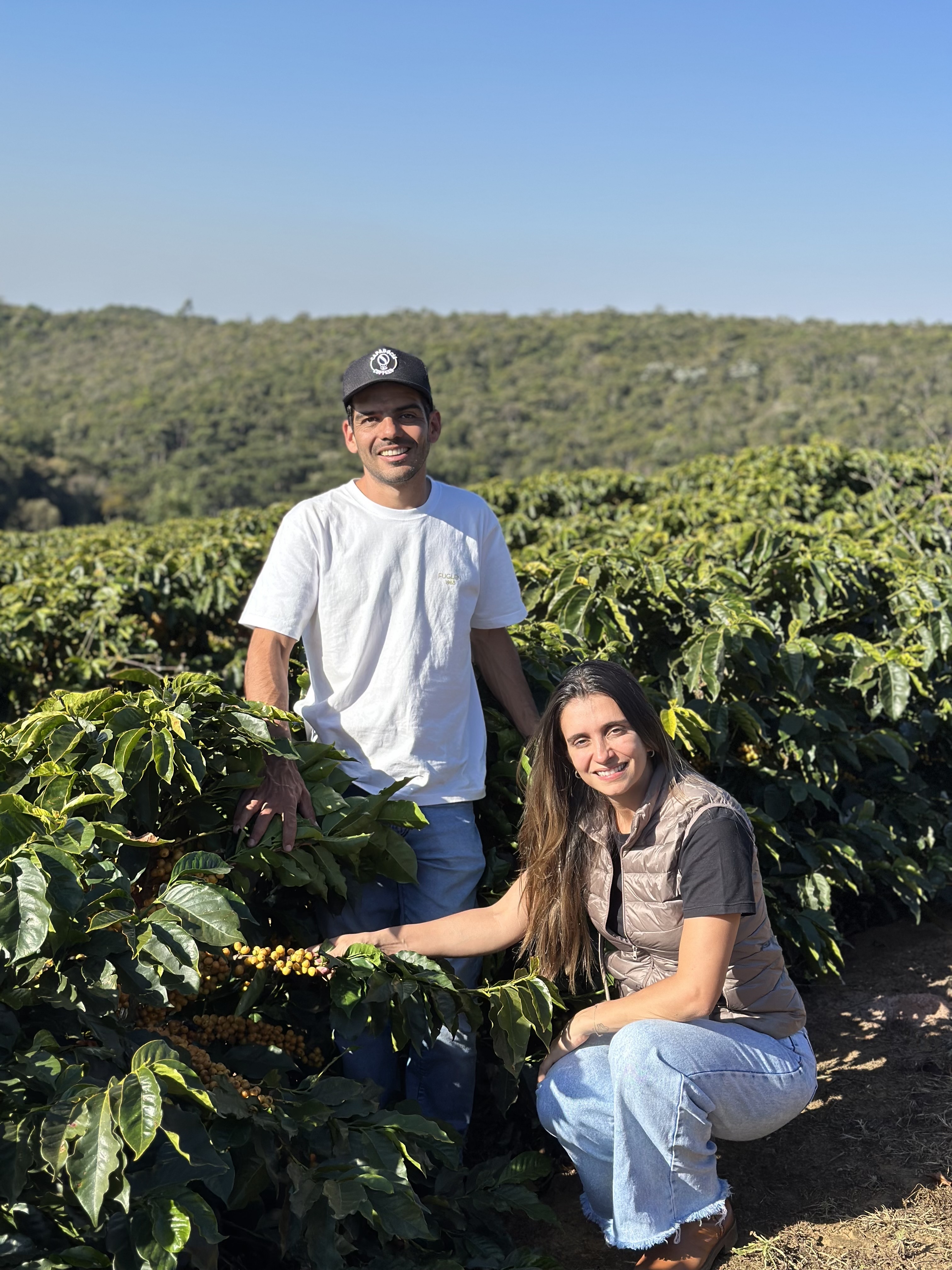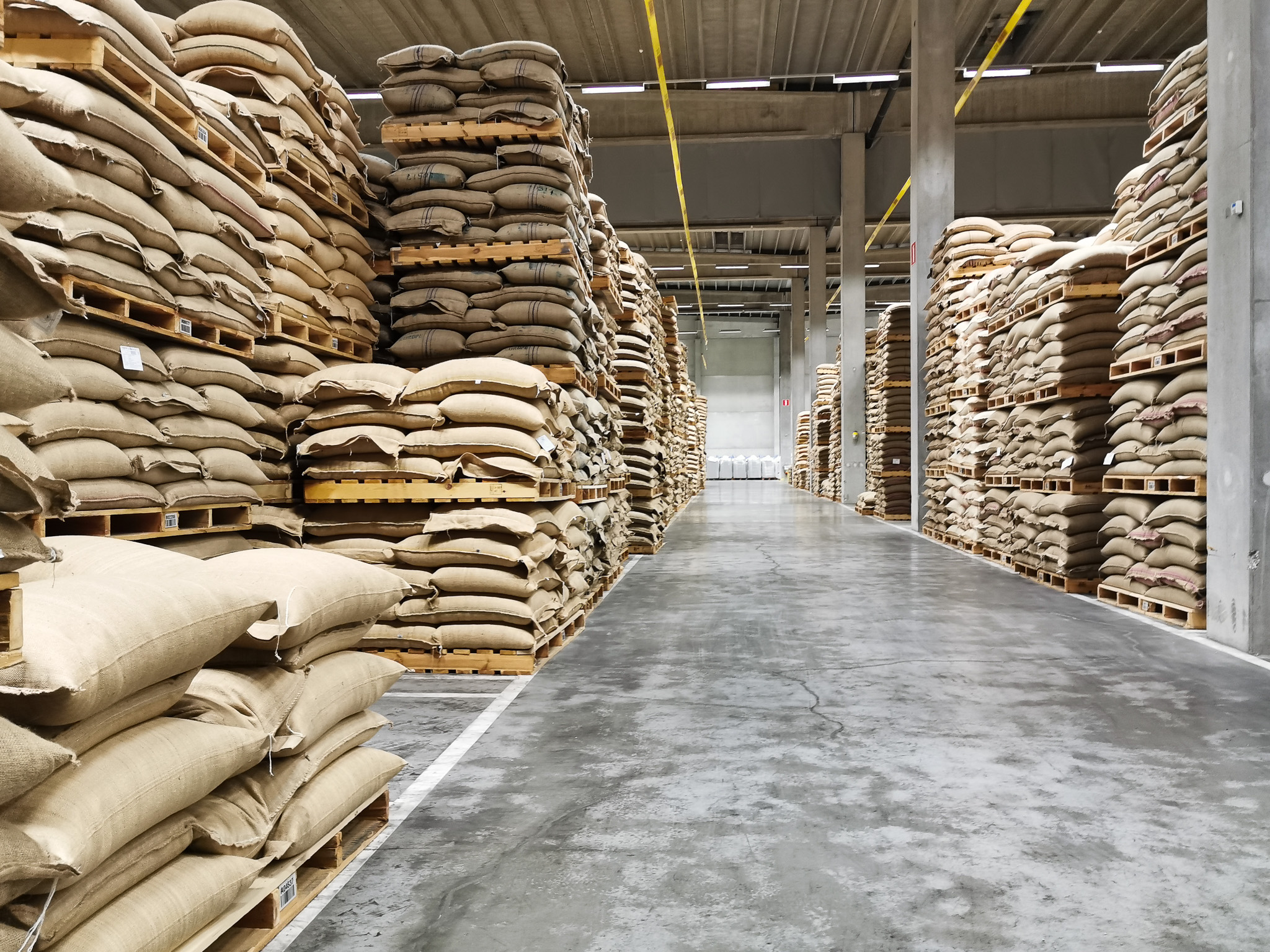The Ethiopia harvest is underway, and our team in Addis is preparing to cup through plenty of coffees, visit washing stations, and prepare all of our upcoming shipments. Here's a rundown of what to expect this season, key timelines, and how you can plan ahead.
Expected timelines
For both Grade 1 (G1) and G2 washed coffees, stock-lot samples are expected to be available in early January. Our Addis lab has already started cupping some early Grade 2 (G2) washed coffees, both organic and non-organic.
Stock-lot samples represent coffees ready for purchase and form the basis for our contracts. These are cupped in our Addis Ababa lab by our Lab Manager, Sisay. She personally extracts the samples from our suppliers’ warehouses for quality and traceability assurance. For these samples, the team looks for the same physical attributes they expect in pre-shipment samples, as they reflect the coffee that will ultimately be processed for export.
For natural coffees, the timeline is a bit later. Due to Ethiopia’s market regulations, naturals take more time to process, so we anticipate the first stock-lot natural samples to arrive in Addis towards late January or early February.
Once we’ve cupped and made our selections, coffees are processed for export. We can then cup pre-shipment samples (PSS), which are also the samples you, our customers, will receive to make your purchasing decisions.
We expect to start cupping PSS for washed coffees in February, and naturals in early March.
Washing station visits
Our Addis team is planning washing station visits in late December to connect with suppliers and assess the harvest’s progress. In January, we’ll return for more site visits and cupping sessions, alongside some of our customers. These visits help us maintain strong supplier relationships and firsthand insight into the coffees we’ll bring to the cupping table.

Planning ahead
Keep in mind—the coffee market is under significant pressure this season, between the impact of rising C-market prices, and Ethiopia’s minimum prices also increasing.
Plus, Ethiopia’s recent currency liberalisation has tightened liquidity, slowing cherry purchasing and processing. In some regions, lower competition is keeping cherry prices down, which may lead to more Grade 2 production than Grade 1. Still, there’s plenty to be optimistic about. Cherry quality and volumes in the fields look promising.
By working with skilled suppliers, planning ahead, and committing to quality, we ensure access to exceptional coffees. Whether it’s Grade 1 or 2, washed or natural, we maintain strict standards for profile and cup score. To secure the best price points, we prioritise locking in contracts as early in the season as possible.
For roasters, planning ahead is essential, regardless of whether you’re purchasing spot coffee from our Belgium warehouse or direct shipments on FOB terms. Let your sales rep know your requirements early—volumes, preferred regions, processing methods, and flavor profiles. This feedback helps our sourcing team make informed decisions when selecting coffees that align with market demand.
Our cupping events are also a great opportunity to explore a wide selection of incoming coffees, not just from Ethiopia but also from other origins like Kenya, Honduras, and El Salvador. You'll cup pre-shipment samples, helping you make informed purchasing decisions ahead of the coffees arriving in our warehouse.
See what we’ve got planned here.
Buying on FOB terms?
If you’re looking to purchase Ethiopian coffees in full container loads on FOB terms, shipped directly to your destination port, we’ve got you covered. You can do so through our product line, Tropiq.
Planning ahead is essential to secure the best lots at optimal price points. That’s why we'll be sending out updated, weekly FOB pricelists with available Ethiopia coffees for purchase. Sign up to our Tropiq newsletter to receive these updates!
What’s new this year?
This season, we’re offering a wide range of coffees, including the familiar names and flavor profiles you’ve come to expect. This includes washed and natural coffees, both G1 and G2, as well as organic and non-organic options.
We’re also collaborating with smaller exporters who might not have the same access to international buyers as larger exporters. By providing market opportunities to quality-focused newcomers, we aim to expand our sourcing network while continuing to prioritise top-tier quality.
We’ve also introduced a new, final quality control step to our export process. After PSS approval, we'll be conducting random physical checks upon container stuffing. This step includes moisture, density, and water activity checks within each container, to ensure that no errors or mislabeling occurred at the warehouse level.
While PSS samples confirm quality after processing for export, this final step adds an extra layer of assurance to ensure the coffee you approve is exactly what arrives to our Belgium warehouse.

The bottom line
No matter your volume requirements, planning ahead is critical this season. Stay in touch with your sales rep, lock in your contracts early, and let us know your preferences...starting now!
Stay tuned for more updates as the season progresses.






